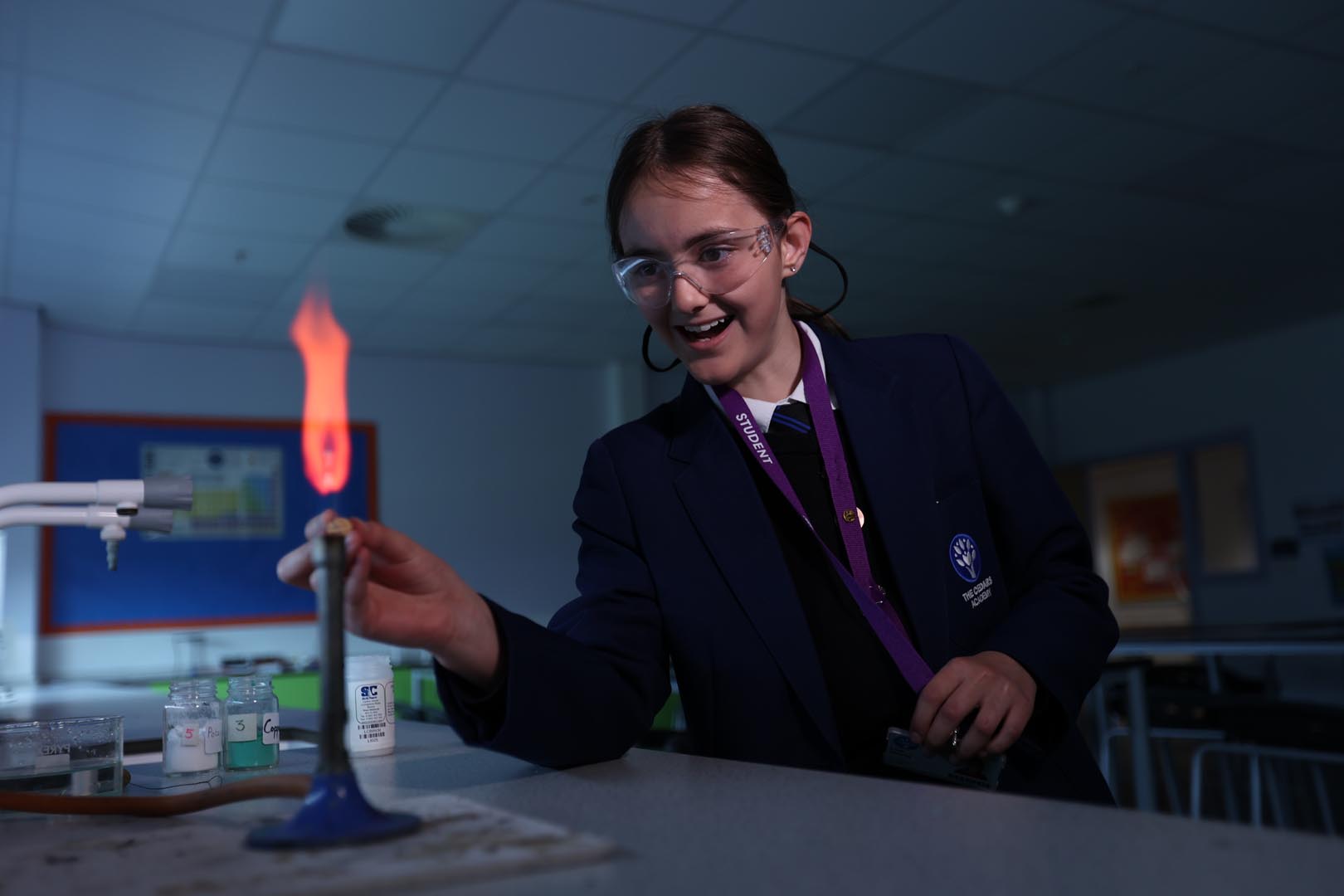
Science
Our Vision
Our vision is to provide an ambitious and dynamic knowledge rich KS3 to KS5 curriculum which will build on prior knowledge, skills and understanding developed as pupils’ progress through the
curriculum journey. We want to create the very best scientists. We challenge pupils to think, act and speak like scientists working in the respective fields. Our curriculum is accessible and inclusive for all pupils. This enables them to articulate scientific ideas using precise technical terminology and apply these ideas to a variety of contexts.
Knowledge is carefully sequenced, with regular retrieval in lessons and targeted questioning allowing pupils to make gains in their knowledge and understanding of the science topics they are and will study. Regular setting of homework through online quizzing (year 7-9) and the monitored homework project (year 10-11) is used to support regular retrieval of current and prior knowledge.
Pupils develop strong practical skills so that they can apply their understanding, gain evidence and are able to critically evaluate data, observation and link this to theory. These practical skills will enable pupils to work scientifically and utilise the skills during the 7 years of study at The Cedars Academy and beyond to HE courses.
Miss Varia,
Head of Department
Studying Science at KS3
Year 7 & 8 3 hours per week. Year 9 5 hours per week.
Year 7
- Block 1: organisms: cells and movement, matter: particle model, forces: speed and gravity
- Block 2: reproduction: human and plant, matter: separating mixtures, earth: universe
- Block 3: genes: variation, reactions: acids and alkalis, energy: transfer and work
- Block 4: ecosystems: interdependence, reactions: metals and non-metals, electromagnets: potential difference and current
Each topic is assessed through end of topic tests. Pupils will also sit 2 “big tests” – multiple choice exams in term 1 and term 3.
Year 8
- Block 1: organisms: digestion, matter: elements, waves: light and sound
- Block 2: ecosystems: respiration, matter: periodic table, energy: heating, cooling and costs
- Block 3: ecosystems: photosynthesis, earth: structure, resources and climate, magnetism: magnets and electromagnets
Each topic is assessed through end of topic tests. Pupils will also sit 2 “big tests” – multiple choice exams in term 1 and term 3.
Year 9
- Genetics: inheritance and evolution
- Advanced Reactions: types of reaction and chemical energy
- Advanced Forces: contact forces and pressure
- Assessment: prior to half term all year pupils sit 2 tests on topics covered throughout KS3



